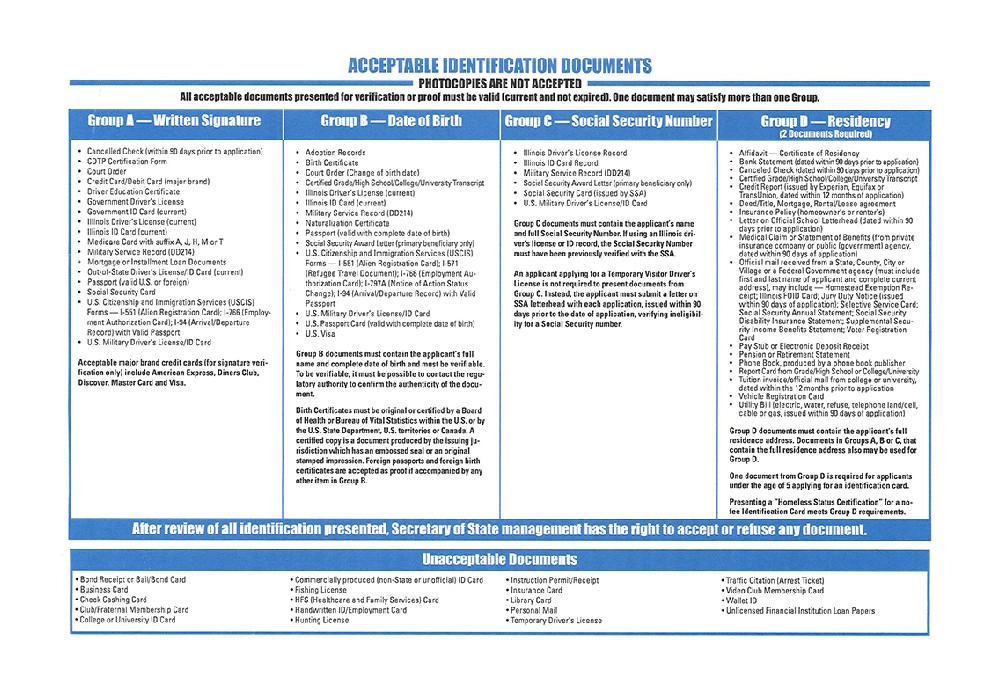COVID-19 Creates Barriers for Securing IDs and Benefits
 First-time applicants for an Illinois State ID Card must present several documents to prove their identity.
First-time applicants for an Illinois State ID Card must present several documents to prove their identity. An ID card is required to obtain housing, employment, or benefits such as Medicaid. But many individuals experiencing homelessness don't have an ID, and now the coronavirus is making it harder to get one.
For months, the Illinois Secretary of State facility in downtown Chicago, where individuals can apply for a first-time or replacement state ID card, has been closed. That forced applicants to travel, if they were able, to less accessible sites. The state recently announced a temporary closure of those sites as well.
But that's just half the battle, said Mirella Rodriguez, Health Outreach Program Lead Case Manager.
"Getting that ID is also hard because of all the other documents, such as a birth certificate and social security card, that are required to prove identity, which many of my clients don't have."
Social Security Administration offices are closed to the public because of the pandemic, creating a barrier for obtaining a replacement social security card. In her experience, the online portal for requesting a replacement has not been accessible for the individuals she serves.
"Many of my clients don't have access to the internet. And while we are supposed to be able to help clients utilize the online system, we've encountered problems with it. I have not been successful at helping anybody create an account online," she said.
At The Night Ministry's Interim Housing Program, Case Manager Sarah Warner said her youth clients are encountering challenges signing up for financial assistance, food benefits, and Medicaid through the Illinois Department of Human Services (IDHS), which has temporarily closed many of its sites.
"IDHS uses a credit agency to verify identity on its online application system. And it's rare for the young adults we serve to have a credit history," she said.
Getting through to IDHS on the phone is also difficult, Warner said, and clients face long wait times. But Warner makes herself available to be with them on those calls.
"It's an opportunity for them to advocate for themselves, and I will model that behavior for them on the call," she said.